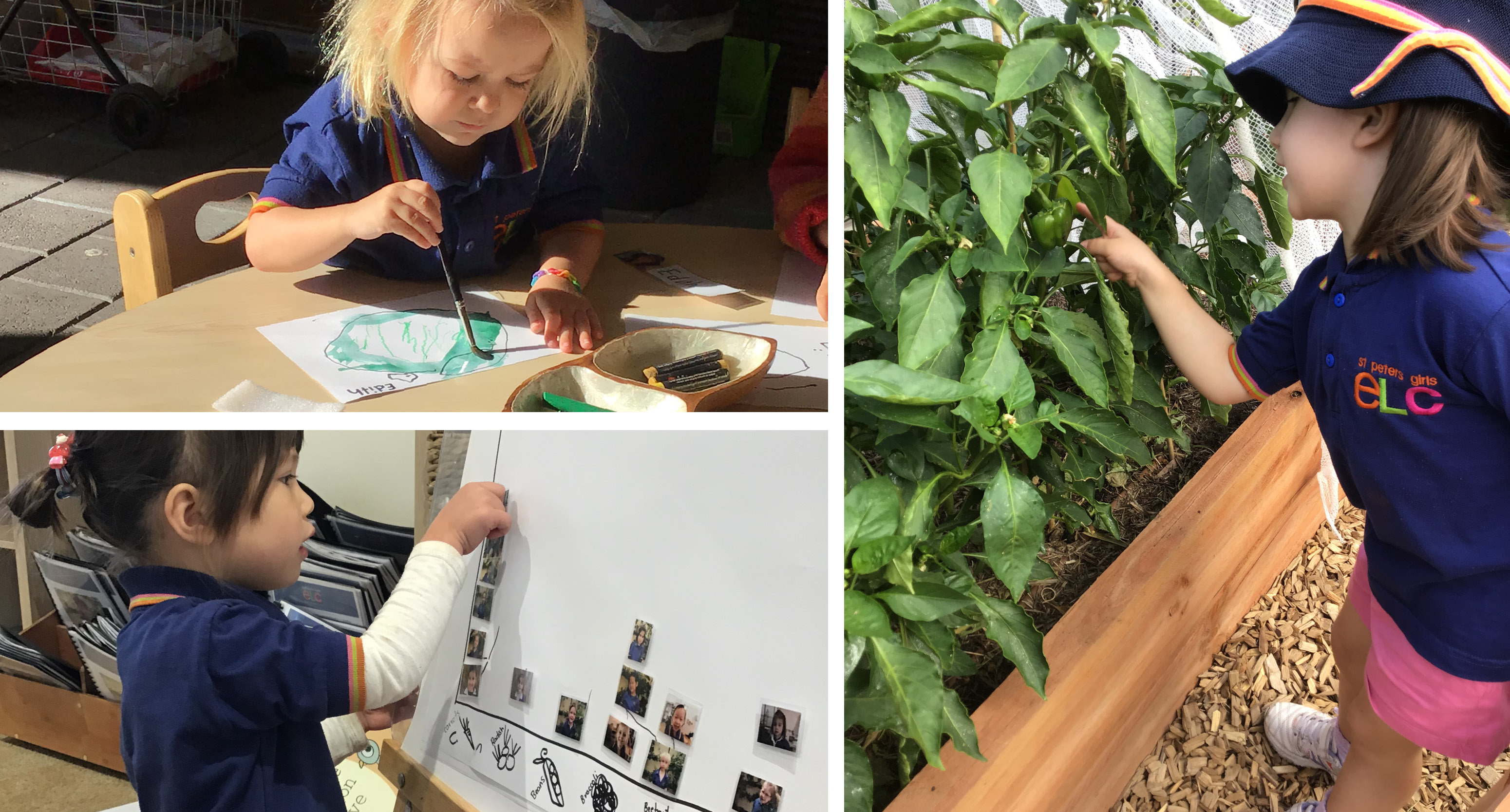Dear Families
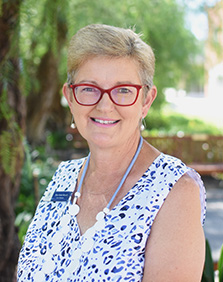
As the end of Term 1 approaches, we would like to thank you for your ongoing support. Despite some challenges, this term has been rich in learning and very productive for both Learning Communities.
Our transition period for all students went smoothly with no time wasted connecting to our learning intentions. We hope you have enjoyed the multiple platforms that our learning has been shared across so far. We will continue to share our learning and intentions via the Learning Community Home Pages and also the end of term Parent-Teacher Conversations.
A decision was made last week to bring our Parent-Teacher Conversations forward to the end of this term and to conduct them over the phone. We hope you understand that this is an efficient way for us to facilitate these meetings during this time. We have collated all of the evidence from the term to highlight your child’s learning journey thus far, and the whole teaching team is looking forward to sharing this with you. Earlier this week, you should have received an email regarding this and how to log in and book your time slot. You will also find these details below.
Despite the changes to travel plans for many of you, we hope that you can find time to enjoy the upcoming holiday period commencing with the Easter long weekend. We know that family rituals are so special and we look forward to hearing about what you are doing together. It is a beautiful time of year with the autumn colours and seasonal changes. This provides opportunities to discuss these further with your child, which will in turn connect to our ELC learning.
At this stage, Vacation Care will continue as normal and we remind families of the need to book so that we can ensure adequate staffing. Please do not hesitate to contact me with any questions regarding this. Vacation Care forms can also be accessed via the link below.
Finally, I thank you for your understanding during this complex time. We appreciate the support and kindness we have received from families. There has been a shared understanding that we are all working together to make this as smooth for our children as possible as they navigate this different way of being. Our priority is their wellbeing, hence the importance of keeping ELC life as one of these positives.
Wishing you a restful break.
Kate Mount
Director of Early Learning
Symphony of Languages in the ELC
Every week, the SOL Team creates a workshop to celebrate the importance of the Symphony of Languages across the ELC. Collaboration between educators and the children enables us to listen and enrich children’s learning with meaningful experiences.
We are currently focusing on the cycle of the seasons to introduce a crucial concept for our Learning Communities: seasonal products. The transformation of nature offers us a chance to continue our learning around sustainable eating and products that are in season. Nature, dance and art work together to give voice to the children’s 100 languages.
Even with some ELC friends currently staying home, we can still learn together as a community! The SOL Team is creating online learning experiences to support creativity at home and to connect with the ELC’s teachings. You can find these resources by clicking on the SOL Team tab on your Learning Community’s Home Page.
Explore Our New Online Resources
In order to assist the families with children at home, we invite you to connect with us via our dynamic online sharing space. Watch the video above to see how we are supporting your child’s remote learning during this time.
We are excited to announce an innovative update to our Learning Community digital platform: the Daily Check-In page. This gives you access to daily welcome videos from your child’s teachers. We encourage you to share these with your child as part of your daily routine.
Furthermore, each of the Learning Communities has established an Additional Resources tab on their Home Pages providing a bank of fantastic resources. This material is being thoughtfully crafted to support the learning that has been occurring at the ELC and to provide you with ways to engage in collaborative experiences within the home. The resources include Literacy and Numeracy, Inquiry, Rest and Relaxation, and our morning Ban Ban Balya Ritual.
Teachers will continue to add regular updates in the relevant ‘Term’ tab to keep in touch with their Learning Communities.
We invite families to communicate with us via email regarding your home learning experiences, and encourage you to find ways to share these with us. This could include photos of your child’s learning, short videos of their participation, and written conversations that you have had with your child.
To view the additional resources available to you, please log in to your child’s ELC Learning Community Home Page via myLink. If you have any issues accessing myLink, contact our IT Helpdesk via (08) 8334 2227 or helpdesk@stpetersgirls.sa.edu.au.
Coronavirus Information for Families
We understand that this is a time of uncertainty for many families and wish to offer you our support. The information provided via the links below outlines the support available to families who are affected by the impact of coronavirus. If you have further questions, please contact Kate Mount via kmount@stpetersgirls.sa.edu.au or our ELC Enrolments Officer Sarah Elliott via selliot@stpetersgirls.sa.edu.au
Information for Families:
Services Australia.gov
Treasury.gov
Education.gov
Downloadable Resources:
World Health Organisation – Advice to Parent Carers
Children’s Social Story – My Name is Coronavirus
Have You Booked Your Parent-Teacher Conversation?
As per the email sent to families last week, Parent-Teacher Conversations have been brought forward to next week, Monday 6 to Wednesday 8 April.
Our conversations will be conducted over the phone to support social distancing.
Bookings are now open and must be made via myLink by Friday 3 April.
Once you have logged in and arrive on the Welcome page, click the ‘Community Portal’ tab in the top menu, then click the ‘Interviews’ tab and select the required cycle. You can log in and change your booking any time up to 3.30pm two working days prior to the day of the conversation.
We strongly encourage you to book a conversation as these provide us with the opportunity to share your child’s learning journey, referencing the rich and meaningful documentation we have supporting this.
Conversations with educators will run to a strict 15 minute duration and we respectfully ask that this time limit be adhered to as our educators have ongoing bookings scheduled.
We look forward to updating you on your child’s learning and development.
Vacation Care Bookings
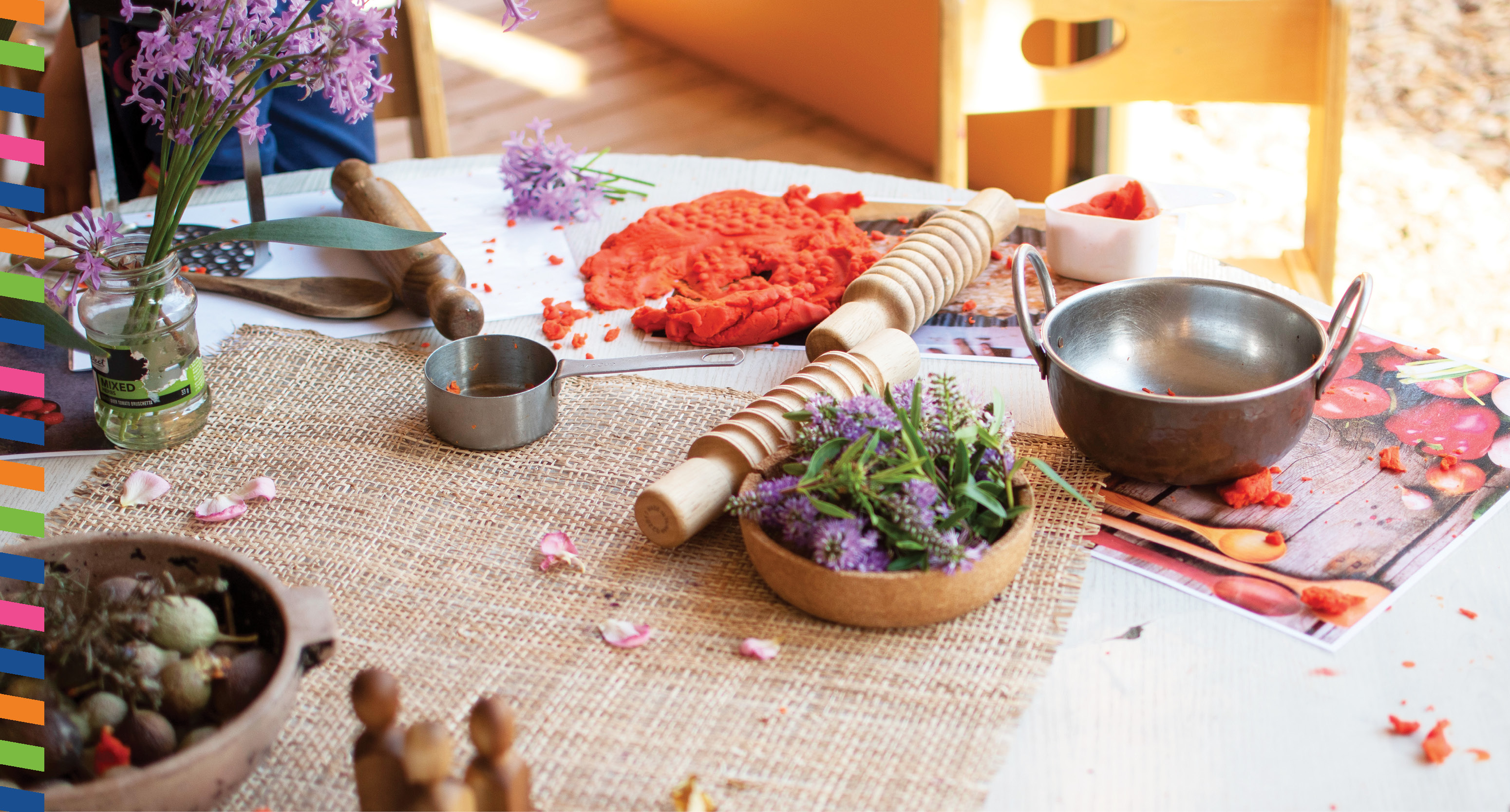
Vacation Care booking forms have been sent home with your children. You can also download the form here. Vacation Care bookings are required if you wish for your child to attend ELC outside of normal term bookings. Please see ELC staff if you have any questions regarding this.
Please note, Vacation Care commences on Tuesday 14 April (after Easter), with Term 2 beginning on Monday 27 April.
Event Cancellations
The Hot Cross Bun Morning Tea on 9 April and our Mother’s Day Afternoon Tea on 8 May have been cancelled. While this is disappointing, we look forward to offering special gatherings for our families later in the year.
来自黄老师的信息
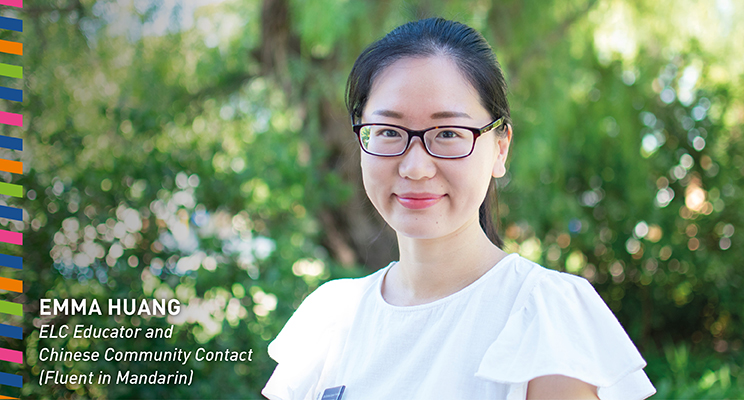
亲爱的家长朋友们,
我们即将迎来这个学期的尾声,十分感谢你们一直以来的支持。尽管这个学期有不少的挑战,我们两个学习社区都学习成果累累。
在学习过程中,因充分结合孩子们的目标,我们所有小朋友的过渡期都十分顺利。我们希望你们喜欢目前这个多平台的交流方式,我们也会继续通过学习社区的主页和“期末家长一对一交流”来分享孩子们的学习情况。
我们的老师们很期待通过这样有效的方式和您们交流孩子们到目前为止的学习成果。
尽管许多人的旅行计划有所变化,我们希望您能有时间享受即将到来的假期,从复活节开始的长周末。 我们知道家庭仪式感有着它特别的意义,我们期待听到您讲述假期里一起渡过的时
光。伴着色彩和季节变化,到了秋天—— 一年中那个美丽的季节, 这提供了与您的孩子进一步讨论这些问题的机会,又将与我们ELC的学习联系在了一起。
目前,我们的假期日托班还会正常进行。请家长朋友们尽快预订,我们会保证充足的教师团队。如果你有任何的疑问欢迎联系我们的园长,报名表格可以通过下面的链接进入。
最后,感谢大家在此特殊时期对我们的理解。我们十分感激来您和您家庭的支持和关心。我们有一个共同的的目标,就是要一同致力于尽可能让我们的孩子们顺利平缓地度过这个特殊的学习期。我们优先考虑的是他们的身心健康,因此ELC生活也是很重要的积极因素之一。
祝您们渡过一个愉快的假期。
Emma works in Learning Community 2 on Mondays, Tuesdays, Thursdays and Fridays from 9am – 5pm.
Sustainability in the ELC
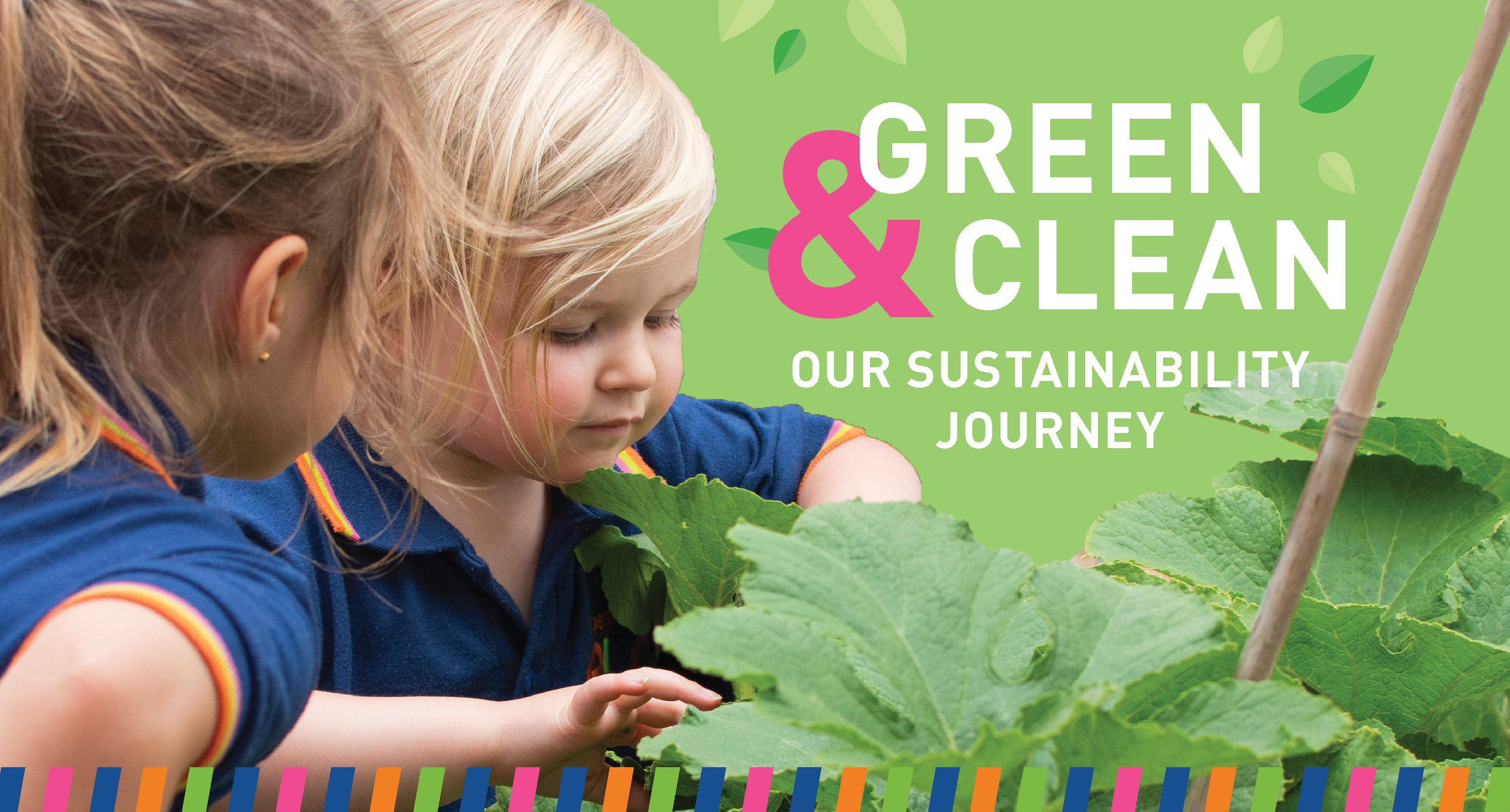
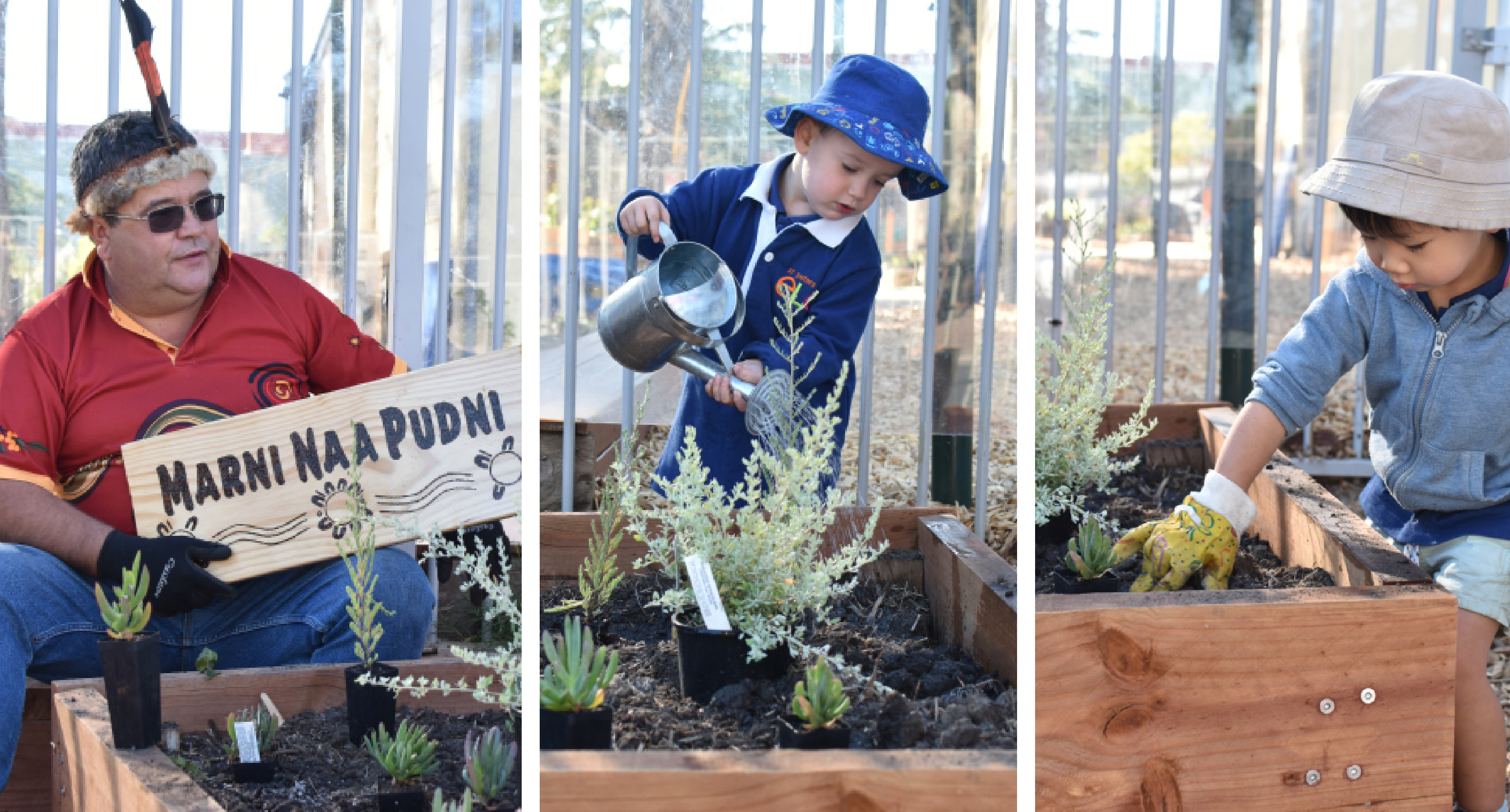
Last week, the children worked alongside Tamaru to plant a sustainable Kaurna garden. Together, we plotted the placement of our new plants, dug the soil, planted and watered. Tamaru shared that these plants need little water to survive, unlike our seasonal vegetables, because they are native to Australia. The children have been invited to ‘think like a scientist’ as we observe his theory and ‘think like a mathematician’ to record our findings.
We are excited to now have these native plants as a part of our ELC Community Garden:
· Ruby Red Saltbush
· Old Man’s Saltbush
· Pig’s Ear
· Lemon Myrtle
Green & Clean question of the day: How do we care for our new native plants?
Community Spotlight
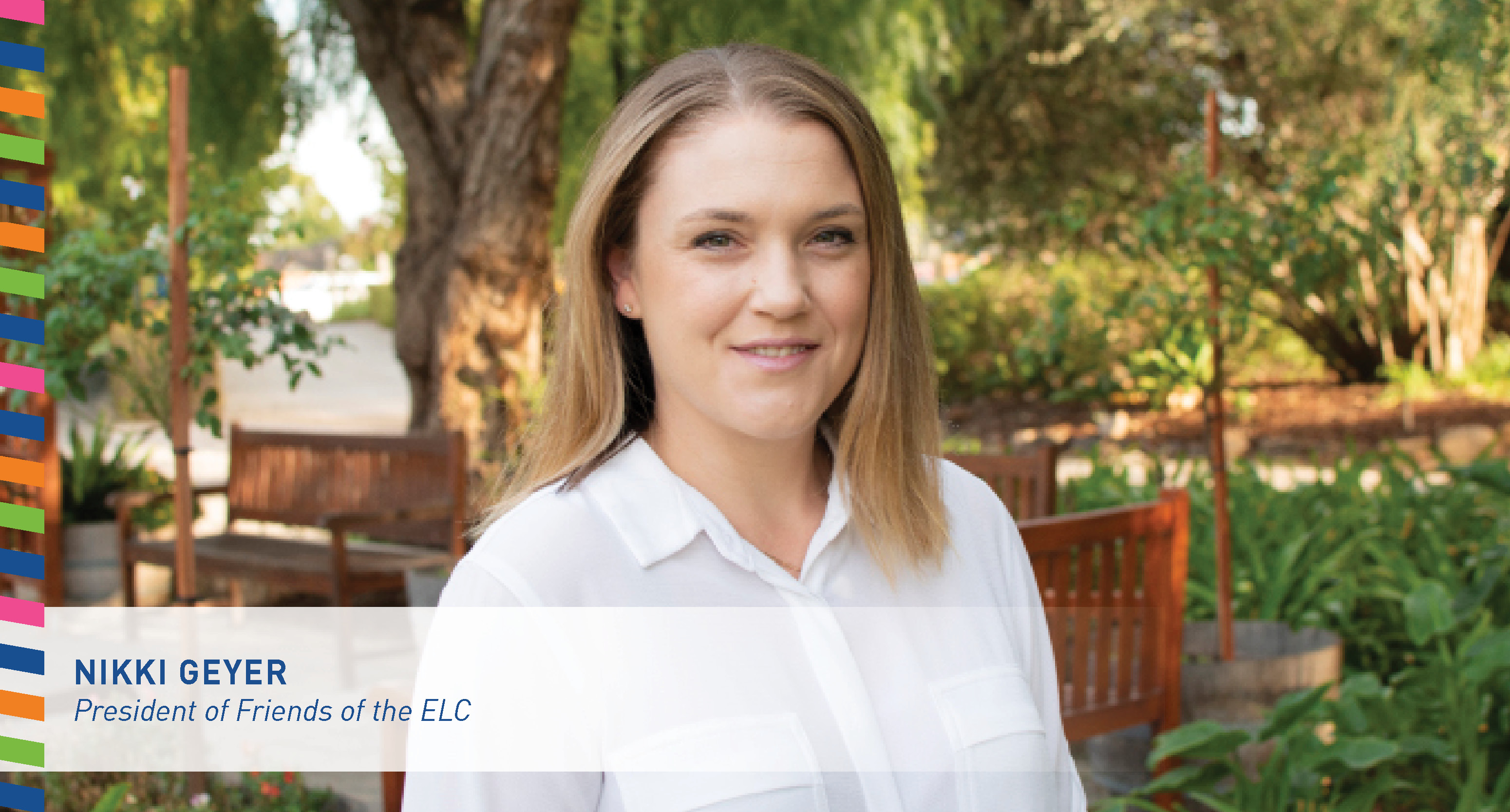
Meet Nikki Geyer. Nikki has a pivotal role in leading the Friends of the ELC. This volunteer group of parents helps build the community within the ELC and beyond. With regular meetings, we discuss how we can best support the ELC teachers. Nikki has two daughters at our campus: Charlee in Reception and Riley in ELC Learning Community 1.
How long have you been involved at St Peter’s Girls’ ELC?
I joined the Friends of the ELC at the beginning of last year when my eldest daughter Charlee started in the Hallett Room. She is now in Reception, and my youngest daughter Riley is in the Stonyfell Room.
What do you love about St Peter’s Girls’ ELC?
The ELC is an amazing facility with wonderful educators. They are what makes the Centre so special, they are passionate, dedicated and caring. My girls love going to ELC and Charlee can’t wait to visit everyone when we go to pick Riley up.
As a parent, how can you make the most of the time your child has at the ELC?
Last year, I volunteered to go along when the educators took children into Ferguson Conservation Park. It was a wonderful experience watching my daughter in this environment and witnessing all the things she was learning. Volunteering in your child’s classroom is a very rewarding experience.
News from Learning Community 1
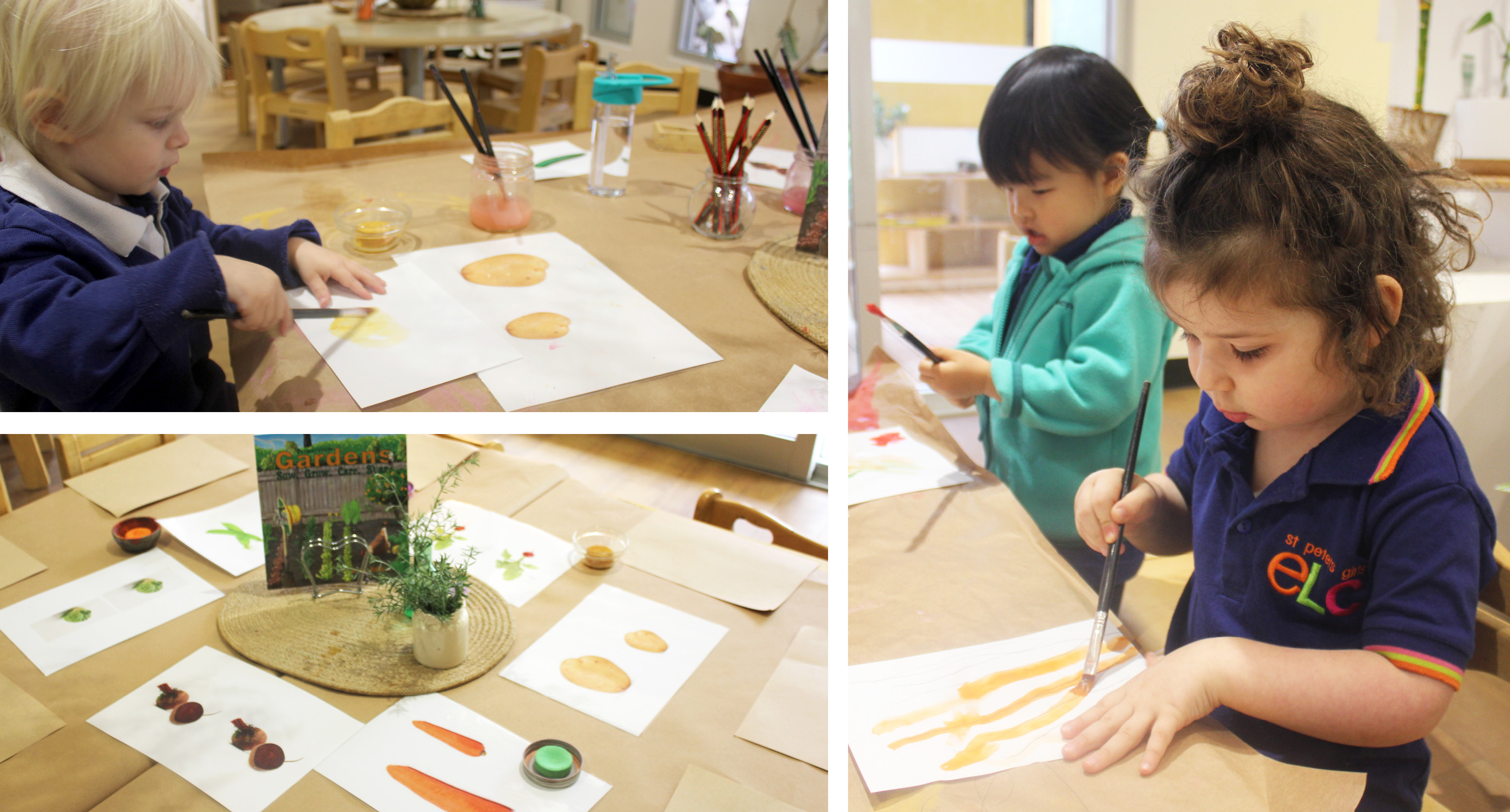
We understand an early conceptual understanding of size in Mathematics predominantly revolves around the word ‘big’ for young children. ‘Big’ is an exciting idea for children. ‘I have the big ball’, ‘Your tower is bigger’, ‘I’m a big girl/boy’. Using the term ‘big’ helps young children to describe the comparisons they are making. It is how they make sense of the world around them that is full of different shapes and sizes.
Knowing this as educators, our invitation to the children is: What kind of big? Is your tower big tall? Is your string big long? Is your lunchbox big heavy? This introduces the children to understanding that big can represent different types of measurement; for example, height, weight and length. Our mathematical focus this term has been to notice and describe size.
As part of our ‘garden to plate’ project this term, our observational drawing table in the atelier has supported this learning. Currently on this table, we have many images of winter produce in varying shapes and sizes. Whilst sitting at this table in small groups, we are able to discuss the images we are seeing and develop our comparative mathematical language.
Which is the larger potato? Which is the longer carrot? Which is the wider beetroot?
“These are my long carrots, these are my short carrots.” – Margo
“I’ve got a tall radish.” – Oscar
This analysis extends to the ELC Community Garden where we are able to compare the different heights of the plants and the size of their foliage.
“The pumpkin bush grows like this (stretches out arms)! It grows wide ways!” – Amelie
The day is full of opportunities to consider ‘What kind of big’ and, as adults, we have even been challenged to consistently use alternative words to describe something that is big! Together in your homes and gardens, we invite you to go on a ‘What kind of big?’ adventure and see how many words you can use to describe the big things you see.
Mel Angel and Annabelle Redmond
Learning Community 1
News from Learning Community 2
“Have you got a kitchen garden at home?”
“What are you planning to plant in the cooler weather?”
In Learning Community 2, we have been inviting the children to ‘think like a mathematician’ as we record and use data to decide what to plant in the ELC Community Garden. The children have noticed that the leaves are changing colour, the weather is getting cooler and the days are shorter. This led to the realisation that it was time to harvest the garden and make plans about what to plant next.
“Some vegetables like the hot but some don’t.” – Stella
“The weather has changed.” – Elena
“We can’t plant carrots, it’s too cold; they like the hot weather when we swim in the pool.” – Alessia
The children engaged in dialogue with their families and friends, gathering evidence of what would grow in cooler weather. We went on regular trips to the School Library and used digital technologies as a learning tool.
“My grandpa grows cauliflower and broccoli.” – Luka
“Nonno grows from seed.” – Alessia
“We have a garden, I grow lettuce.” – Stella
“My daddy grows vegetables.” – Sienna F
The information gathered was shared in our Ban Ban Balya where it was decided:
“We can make a graph and see who wants to plant what.” – Poppy R
The children explored different methods of representation to organise, record and communicate their choices, exploring and engaging in a range of mathematical ideas and concepts.
“More friends want to plant carrots.” – Poppy R
“I like cauliflower; I am the only one.” – Willow
“Carrots win.” – Harriet
Having agency over their learning gives the children the opportunity to make choices and decisions that influence events and have an impact on their world.
Leanne Williams, Nell Tierney and Laura Reiters
Learning Community 2
Absences in the ELC
Student Absences
Please notify the School via one of the following methods for late arrivals/early departures and absences, ensuring a reason for the absence is included.
Text: 0428 601 957 (save to phone contacts as SPGS)
Email: attendance@stpetersgirls.sa.edu.au
Phone: 8334 2200 or phone the relevant room as per the contact list below.
Feel free to also include the relevant room teacher when sending via email.
ELC Room Contacts:
Bell Yett – 8155 5777
Ferguson – 8155 5776
Hallett – 8155 5775
Stonyfell – 8155 5778
Accessing the ELC Learning Community Home Page
The ELC Learning Community Home Page is a dynamic online sharing space that invites you to participate in the communities’ learning as it happens. It provides a window into the children’s life at the ELC as educators share documentation of intentional teaching, specialist lessons and spontaneous moments.
Accessing myLink for the first time:
- Visit https://mylink.stpetersgirls.sa.edu.au
- To set your password, click the link located below the sign in section
- Your username was emailed to you upon your child’s commencement (see Helpdesk contact details below if you cannot source your username)
- Enter your unique username, click ‘Next’
- On the next screen, enter the security code that was sent to your mobile
- Enter the password you would like to use and press submit
- Return to the login screen at https://mylink.stpetersgirls.sa.edu.auto access myLink
- Several instructional videos are available via the Welcome page if you click on the ‘HELP’ menu tab.
Accessing the Learning Community Home Page through myLink:
- Access myLink as per the above instructions
- Click on the ‘MYLINK HOME’ tab
- Click on your child’s name tab
- Under ‘Class Contacts’ click on the ELC room name (you may need to enter your username and password again)
If you have any problems accessing or navigating myLink, please contact the IT Helpdesk via
8334 2227 or helpdesk@stpetersgirls.sa.edu.au.
ELC’s Online Etiquette Policy:
Please note that the ELC Learning Community Home Page and ELC News will contain some images and video footage of other children. We therefore ask that you do not copy or share images or videos, especially on social media, if they contain other children.
ELC Immunisation Policy
Under the Government’s No Jab No Pay policy, families must meet immunisation requirements to receive the Child Care Subsidy. Further information is available from the Department of Health by clicking here.
Children with high-risk conditions, as well as children who are not immunised against them, may be excluded from the ELC in accordance with the ‘Staying Healthy: Preventing infectious diseases in early childhood education and care services’ guidelines. Please refer to our Exclusion Policy for further information.
Common illnesses requiring exclusion include:
Influenza
Chicken Pox
Conjunctivitis
Diarrhoea
Hand, Foot and Mouth Disease
High Temperature
Infectious Hepatitis
Measles
Meningitis
Mumps
Rubella (German Measles)
Scabies
Scarlet Fever
School Sores (Impetigo)
Upper Respiratory Tract Infection
Vomiting
Whooping Cough

